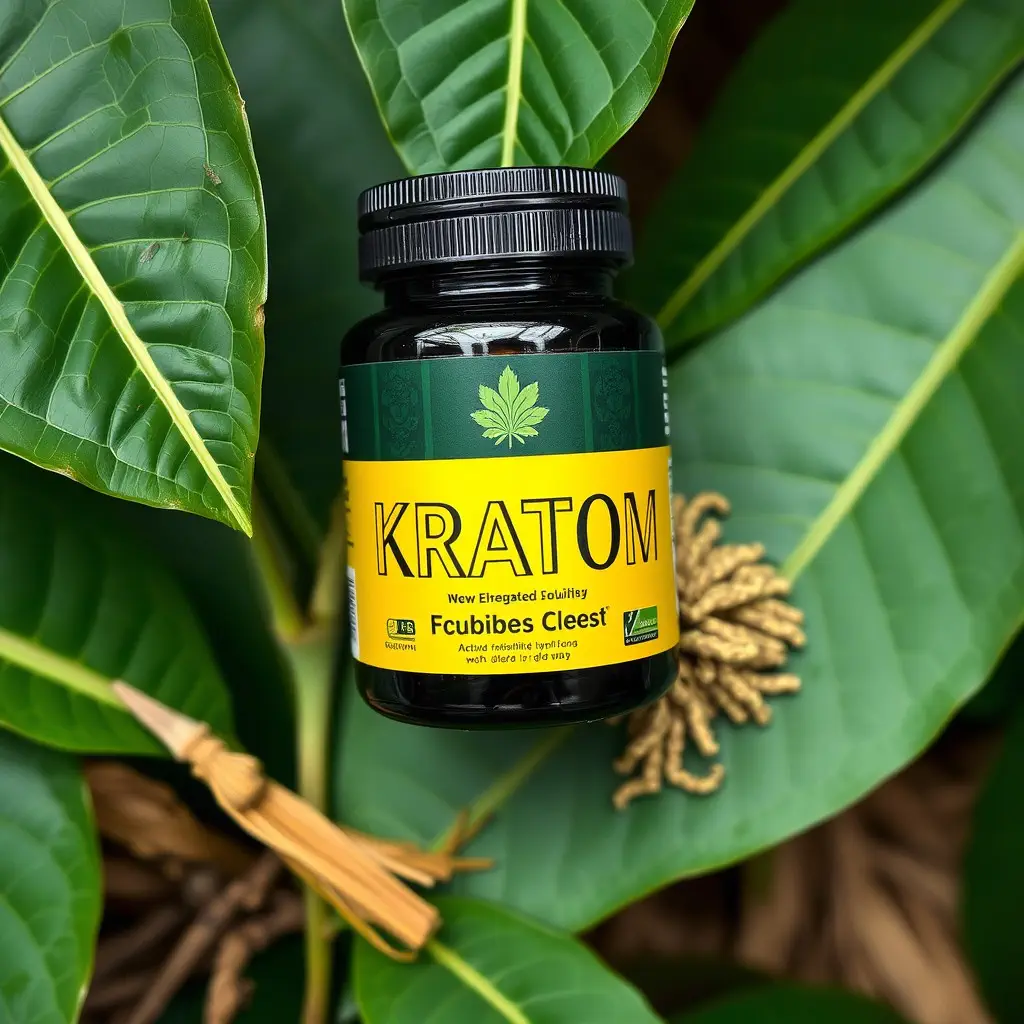Thai Kratom Powder, derived from the Mitragyna speciosa tree, offers diverse strains with unique alkaloid contents, providing benefits like improved focus and pain relief but carrying risks of dizziness and anxiety if overconsumed. Navigating legal landscapes and prioritizing reputable suppliers is crucial for safety and avoiding issues, especially with varying regional regulations on kanna products.
“Explore the captivating world of Thai Kratom Powder, a traditional herb with growing global popularity. This article delves into the multifaceted nature of this powerful extract, offering a comprehensive guide on its origins, diverse varieties, and cultural significance. We weigh the potential benefits and risks associated with ‘kanna products’, providing insights for informed decisions. Furthermore, navigating legal considerations and safety measures is crucial; we equip readers with essential knowledge to ensure responsible usage.”
- Understanding Thai Kratom Powder: Origins and Varieties
- The Benefits and Potential Risks of Using Kanna Products
- Navigating Legalities and Safety Measures for Thai Kratom Powder
Understanding Thai Kratom Powder: Origins and Varieties

Thai Kratom Powder, also known as Kanna products, originates from the leaves of the Mitragyna speciosa tree, native to Southeast Asia, particularly Thailand. This region’s diverse climates and soil conditions contribute to a variety of kratom strains, each with distinct properties. The most well-known varieties include Maeng Da, which is renowned for its potent effects, and White Kratom, known for its calming attributes. Each strain varies in terms of alkaloid content, giving rise to different experiences when consumed.
Understanding the origins and varieties of Thai Kratom Powder is crucial as it informs users about the potential effects they can expect. From the energizing boost of Maeng Da to the soothing relaxation of White Kratom, each has its unique place in the world of kanna products. This knowledge empowers consumers to make informed decisions based on their desired outcomes, ensuring a safe and beneficial experience.
The Benefits and Potential Risks of Using Kanna Products

Kratom, scientifically known as Mitragyna speciosa, has gained popularity for its diverse effects on users. When consumed in powder form, Thai Kratom Powder offers a range of benefits attributed to its bioactive compounds, including mitragynine and 7-hydroxymitragynine. Many users report enhanced focus, mood elevation, and increased energy levels, making it a preferred choice for those seeking mental stimulation and improved productivity. Additionally, kanna products are known for their potential analgesic properties, providing relief from chronic pain and inflammation. This natural alternative has attracted attention as a non-addictive solution for managing pain, especially in regions where access to prescription medications is limited.
However, like any substance, Thai Kratom Powder and other kanna products come with potential risks. The primary concern revolves around dosage and individual tolerance. Overconsumption may lead to adverse effects such as dizziness, nausea, and anxiety. Furthermore, due to its complex chemical composition, the long-term effects of consistent use are not yet fully understood. Regular users should be vigilant about their intake and monitor any unusual changes in physical or mental health. It’s crucial to approach kanna products with informed caution, especially considering the variability in product quality and purity.
Navigating Legalities and Safety Measures for Thai Kratom Powder

Navigating the legalities surrounding Thai kratom powder is a crucial step for anyone considering its use. Kanna products, like any other supplements, are subject to varying regulations worldwide. It’s essential to understand that what is legal in one country might be strictly regulated or even prohibited in another. In many regions, kratom falls into a legal grey area, with some countries allowing certain types and others banning all forms. Before purchasing or using Thai kratom powder, ensure you’re familiar with your local laws to avoid any legal repercussions.
Safety should always be the top priority when dealing with kanna products. Since kratom is not approved by the FDA, it’s up to consumers to make informed choices. Look for reputable suppliers who offer third-party lab testing and transparent information about their sourcing and production methods. Verify the purity and potency of the product to mitigate potential risks associated with contaminated or improperly processed kratom powder. Additionally, educate yourself on the effects of kratom and consult a healthcare professional if you have any concerns or underlying health conditions.
Thai Kratom Powder, known for its unique origins and diverse varieties, offers a range of potential benefits, from pain relief to mood enhancement. However, it’s crucial to approach kanna products with caution, considering the associated risks and legal complexities. Before using Thai Kratom Powder, thoroughly research and understand local regulations, and consult healthcare professionals for personalized advice. Responsible use and awareness are key when navigating this alternative remedy landscape.






